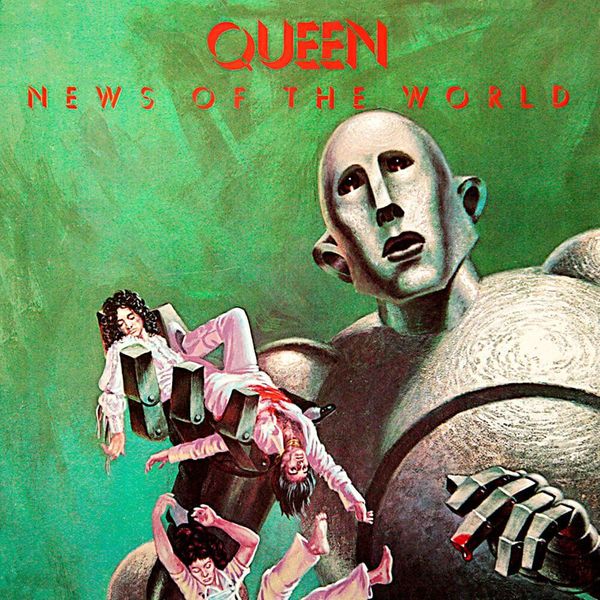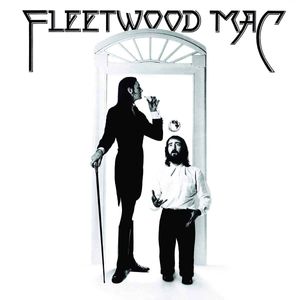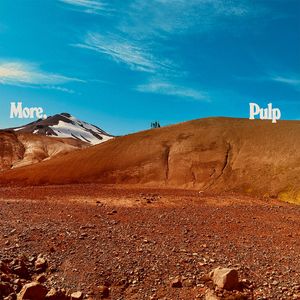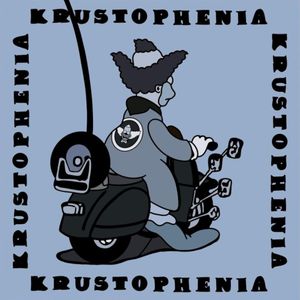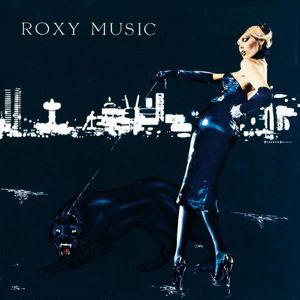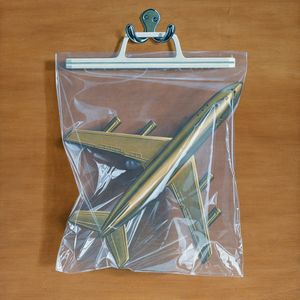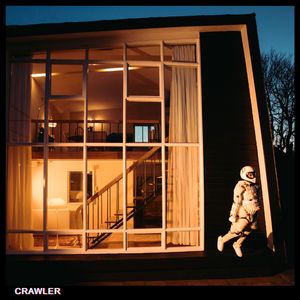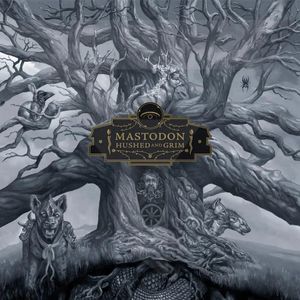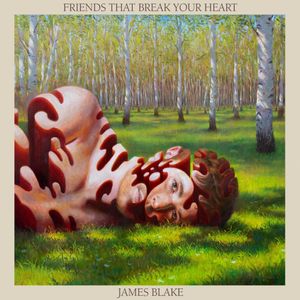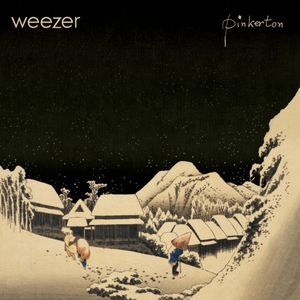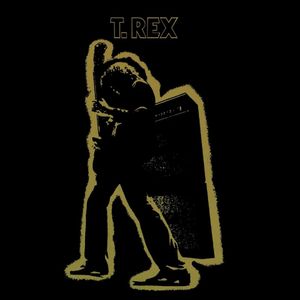How to Dismantle a Frontloaded Discography: U2’s studio albums ranked
Writing about U2 is possibly the most uncool thing you can do on the internet in 2021. However, we feel it's important to remember there was a time - albeit some years ago - when they were releasing excellent music. Not just the biggest band in the world, but one of the very best.
So, what is the best U2 album? To find out, we delved head-first into the band’s entire discography, from the early post-punk days of Boy right through to the painfully mundane Songs of Innocence and Experience. Our journey had its ups and downs, to say the least, but we feel confident of where we ended up. Which is just as well, because we’re never putting ourselves through this again.
To those looking to find an entry point into U2: you can probably skip the first half of the list.
To long-time fans: we’re sorry for getting it wrong.
14. Songs of Experience (2017)
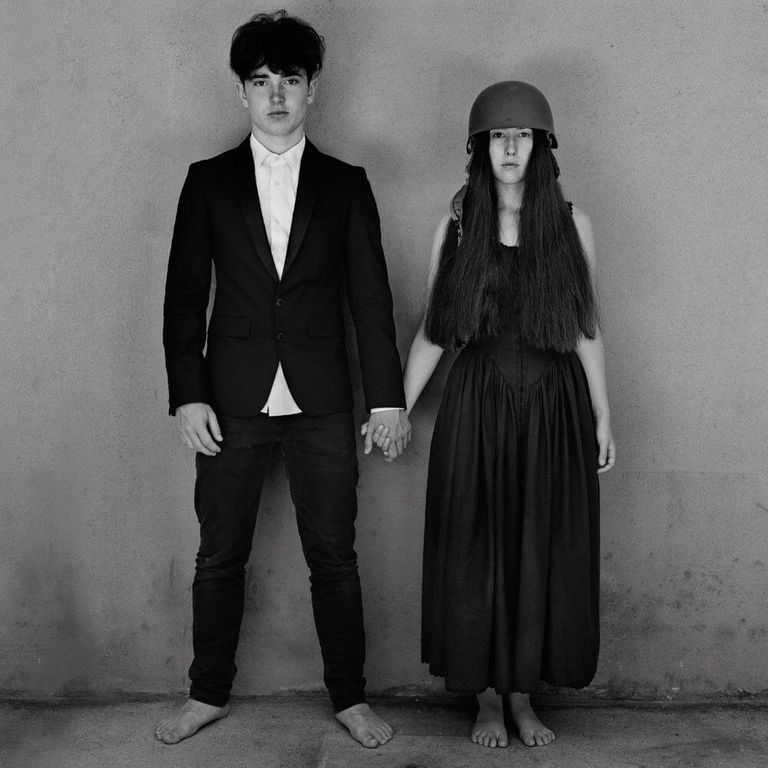
Rob
13. Songs of Innocence (2014)
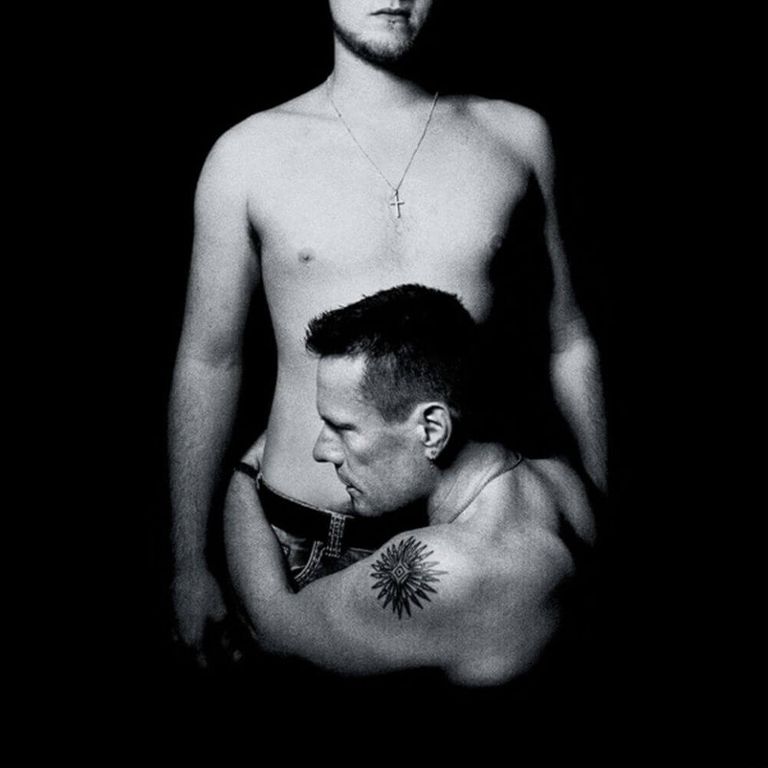
Fred
Old Bono, with dyed hair,
Does laugh away care,
Sitting under the oak,
Among the old folk.
They laugh at our play,
And soon they all say,
‘Such, such were the joys
When we all—little Dublin boys—
In our youth-time were seen
On the echoing green.’
12. No Line on the Horizon (2009)
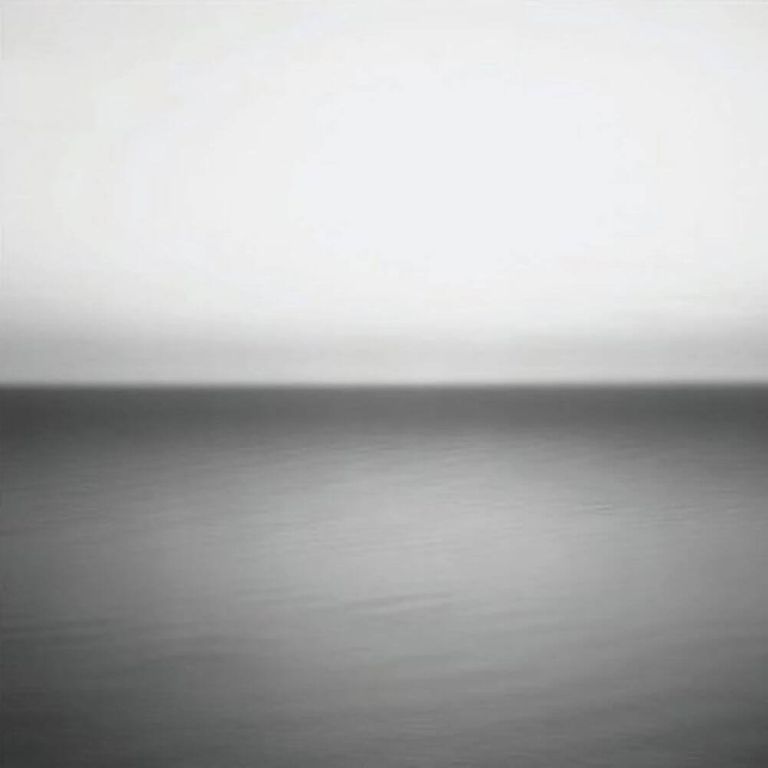
André
No Line on the Horizon doesn’t start off too badly. In fact, the opening few tracks are pretty damn good. Although the title track does feature the typical ‘WOAHHH’s that Bono has been wailing out for decades, its sense of progression and climax is extremely satisfying. It’s a slight hark back to the days of The Unforgettable Fire, which seemed inevitable with Eno and Lanois back on production duties.
Though “Magnificent” is more patient in its approach, it gradually evolves into another weighty chorus of trademark chimes and chants. For a moment it seemed like the band had found a new lease of life: they hadn’t moved into uncharted territory, but instead recaptured what once made them a worldwide sensation. Still unmistakeably U2, but more compelling and less trite than Atomic Bomb. It served as further proof that these gents have an undeniable knack for grandiose arena anthems. If there was ever any doubt.
Unfortunately, it doesn’t take long for things to go sour. “Get On Your Boots” encapsulates the mess perfectly: an anti-war song with lyrics that I can only assume were meant to be evocative (‘Satan loves a bomb scare, but he won’t scare you/hey sexy boots, get on your boots, yeah’) but wind up being horrendously comical. It flaunts a guitar theme taken from Tom Morello’s Big Book of Riffs and a percussion part that was almost definitely made in Garageband. It is, without a doubt, U2’s worst single. Ever. Meanwhile, “Stand up Comedy” is a funk-rock disaster that the band have ‘perfected’ countless times prior, whilst “FEZ/Being Born” is a confused, overelaborate shambles. I can only assume Eno and Lanois deeply regret being credited on that one. “White as Snow” attempts to salvage something special towards the end, but it sounds like a complete copy of a Johnny Cash ballad.
Here sums up the biggest problem with modern U2: absolutely nothing sounds original. The enjoyable opening portion of No Line on the Horizon suggests the band should stick to what they know, but to his credit (or detriment), Bono has always spoken about creating new album experiences. If I sound confused, that’s because I am. No Line on the Horizon is utterly perplexing, and damningly dull.
11. Rattle and Hum (1988)
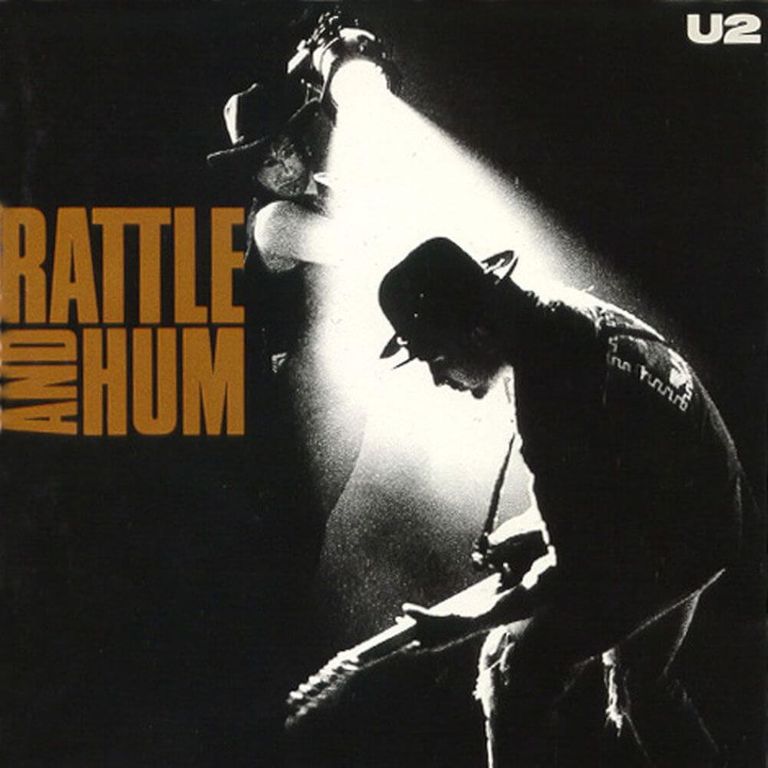
Rob
Can anybody recall a genuinely brilliant album written while a band were touring America, and was essentially produced as a tribute to America? Gorillaz tried but stumbled with The Fall, and I’m sure there have been dozens of other attempts throughout pop music history, but perhaps none are so notable or infamous as Rattle and Hum. Comprised of both studio and live recordings, and released with an accompanying documentary film, this album was steadfastly and proudly dedicated to being the ultimate U2 experience. But that’s precisely why it falls short of the mark and, back in the 1980s, forced the band to reassess.
I wasn’t around at the time to spot the exact moment when Bono’s smug arrogance started turning people off him, but Rattle and Hum might have been it. Riding high off the acclaimed The Joshua Tree, he sets about reimagining his own classics by offering up meandering, undisciplined renditions of them here. Madison Square Garden might well have been enraptured as a gospel choir turned “I Still Haven’t Found What I’m Looking For” into a seemingly endless coda section, but absent of context or visual aid (and with the knowledge that you could just be listening to the original), it’s aggravating. It’s indicative of the album’s impressive range of well-meaning but ultimately misguided excursions.
Of course, it isn’t without merit. “Desire”, their first #1 single, is an up-tempo rabble-rouser that employs harmonica expertly; B. B. King turns up to add some necessary grit and gravel to “When Love Comes to Town”; and throughout the record there are a number of moments that do place you in the stadium environment, swaying and singing along with the thousands who’ve flocked with you to see one of the biggest bands in the world do their thing. On balance, though, it leaves you knowing that a rethink was necessary if U2 were to dominate the 1990s in the manner that they had dominated the 1980s.
10. How to Dismantle an Atomic Bomb (2004)
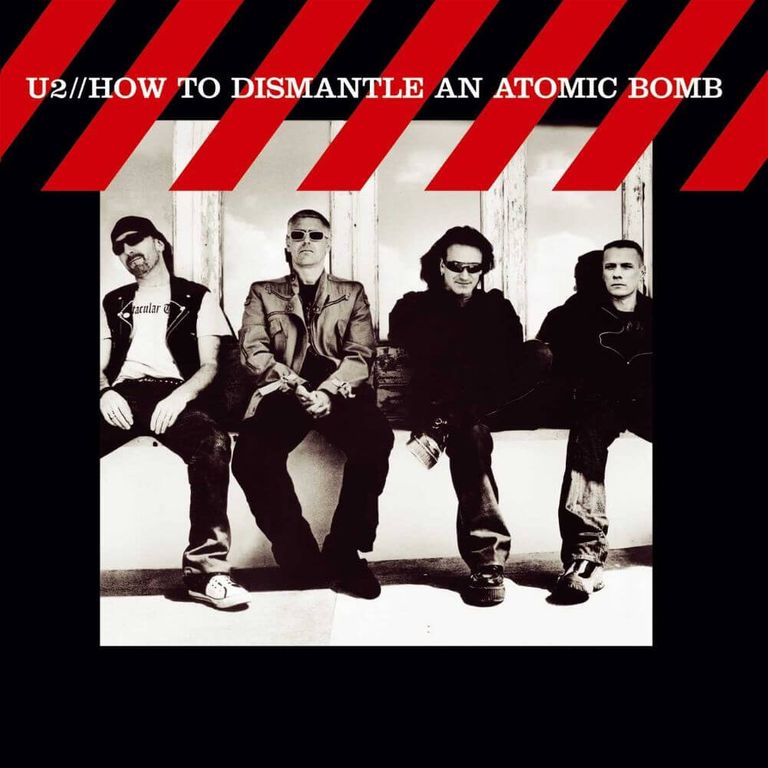
Rob
My history with How to Dismantle an Atomic Bomb will influence what’s written here. Released just before my 11th birthday, it received regular rotation in my family home and its singles dominated the charts just as I prepared to leave primary school. All of this meant that it became the soundtrack to my first realisation that not only did life have chapters, but that the first major chapter of my life was ending. It was a lot to take in at the time, so forgive me if I still feel something twinge when “City of Blinding Lights” winds up.
With hindsight, it’s hard to ignore the distracting influence of post-Britpop’s biggest names upon proceedings here. Coldplay, Keane, Snow Patrol, even Athlete (who toured with U2 during this album’s cycle) – they each get a look in at various stages. The heavily strained and emotive vocals from Bono that persist throughout; the glitzy sheen applied to everything in the mix; the pivot away from more experimental flavours and towards those adopted by their aforementioned pop rock contemporaries. It all makes for something that’s listenable and occasionally reminiscent of the band’s heyday, but frustratingly uninspired and occasionally quite bland.
I’ve always been a sucker for the singles this album spawned, purely for the memories I have attached to them. “Vertigo” is just about the best you can get from a guy so willingly smelling his own farts; “Sometimes You Can’t Make It On Your Own”, which recounts the death of Bono’s father, is a genuinely affecting ballad; “City of Blinding Lights” is the show-stopper, reading from the hymn sheet that made X&Y such a worldwide success but still retaining the production touches that gives it an individual identity. Still, they’re only an indication towards what could have been. Atomic Bomb is hardly a death knell for the band, but this was the last time they would command such sway with the public – and for good reason.
9. October (1981)
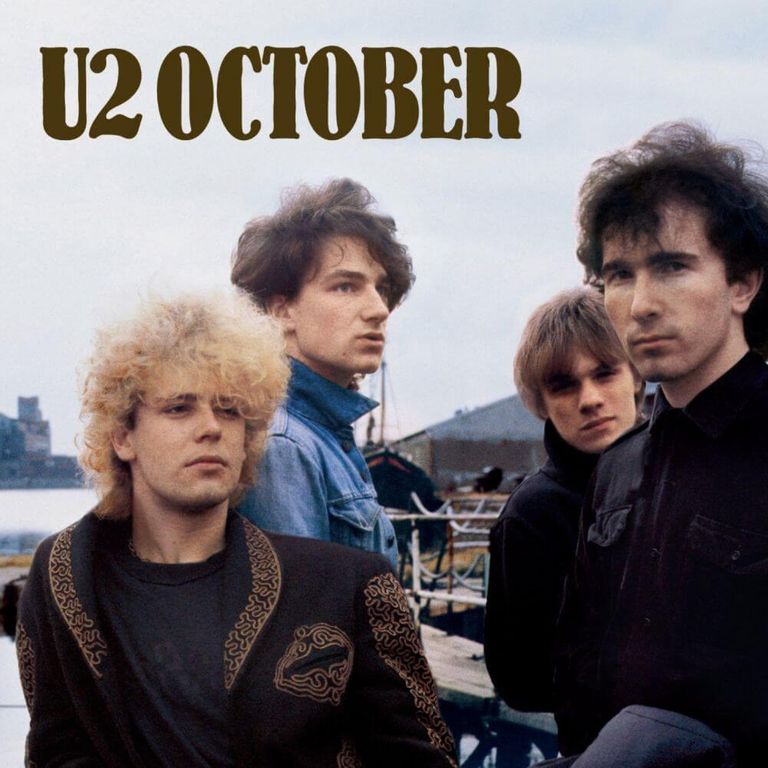
Fred
Joy Division meets Christian rock? It could only be U2. Bono howls at the moon, the band lean into the ‘80s, and it’s all perfectly solid if a little forgettable. The album’s not so much a sophomore slump as it is a sophomore slide, with October’s sound picking up where Boy left off. It’s seldom as good, but there’s an unlikely peacefulness to October’s godly fervour. A serenity, even.
Made half in a panic of lost lyrics and half in a religious stupor, it’s impressive just how tight the record feels. What should have been a mess instead landed in an ‘80s sweet spot. The mix is cavernous and grand, as you’d expect from a U2 record, but it manages to avoid feeling like it’s wading up to its waist in mud. There’s a spaciousness to it. Truth be told the band always did a good job avoiding the thicker, gloopier ’80s production sins. October has muscle, but it has finesse too.
I suppose the record just lacks those tentpole hits. Christian modesty only gets you so far. The mythic tint on “Tomorrow” is a welcome change of pace, but for the most part tracks coast by in a haze of spiritual rocking and rolling. It makes for very pleasant, if unspectacular, U2 listening.
8. All That You Can't Leave Behind (2000)
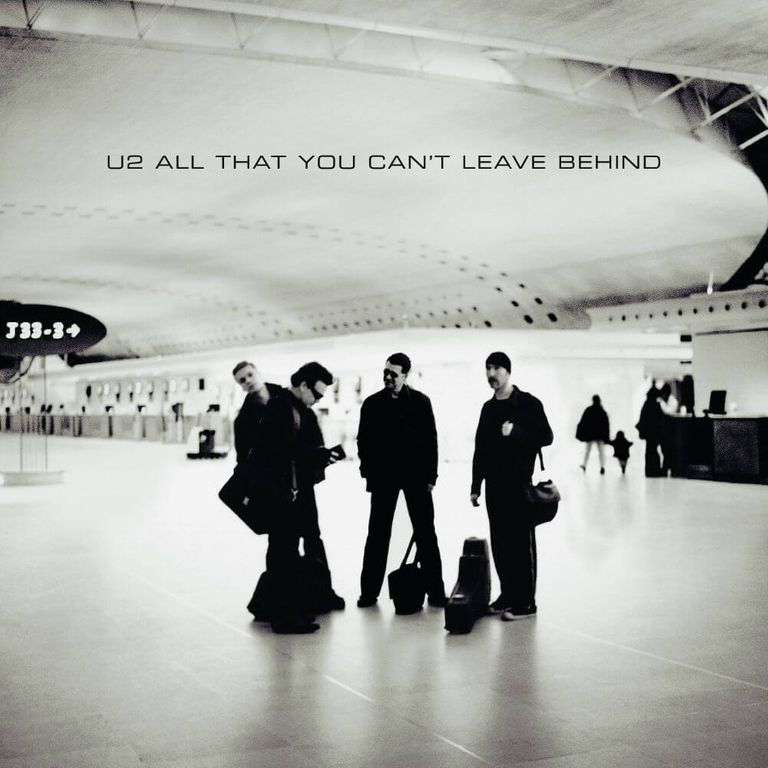
André
All That You Can’t Leave Behind was my first U2 album. I was still a mere pup in the year 2000 and my musical taste buds had barely started to develop. Though my memories are fairly scant, the record clearly left an impression on me. There were worse things than waking up to my father blasting “Beautiful Day” on a Sunday morning. “Elevation” is quite clearly a derivative rock jam, but to an eight-year old lad it sounded as big as the World.
I’ve often cited Muse as the first band I truly loved, and I think U2 (with this album in particular) had a part to play in that. To this day I still have a soft spot for tasteful arena rock. I guess I get a kick out of the extravagance. There’s always a degree of grandiose nonsense, of course: perfectly epitomised by the unfortunate trend of middle-aged white men thinking they can pull off R&B. “In A Little While” is one such moment. Alas, it’s simply best to look past it.
All that being said, ATYCLB is actually one of U2’s most low-key records. It’s nowhere near as vast as The Joshua Tree, and certainly not as daring as any of the ’90s releases. Following the anthemic opening portion of the record (it’s still U2, after all) the band steadily dial things down a notch, and the result is quite satisfying. “Kite” stands high as one of my favourite U2 tracks of the 21st century. Though slightly formulaic, it features some of Bono’s most heartfelt and genuine lyrical passages, set over a gorgeous musical backdrop. It’s a reflection of Bono’s relationship with his father, who had been diagnosed with terminal cancer: ‘I’m a man, I’m not a child/a man who sees the shadow behind your eyes.’
It’s this level of sincerity that is sorely missing from most of U2’s music following ATYCLB. Indeed, this is perhaps the most tender album in their entire discography. It’s far from cutting-edge, but undeniably thoughtful, and generally well constructed. Despite lacking in excitement, ATYCLB is comfortably U2’s greatest effort of the 2000s.
7. Zooropa (1993)
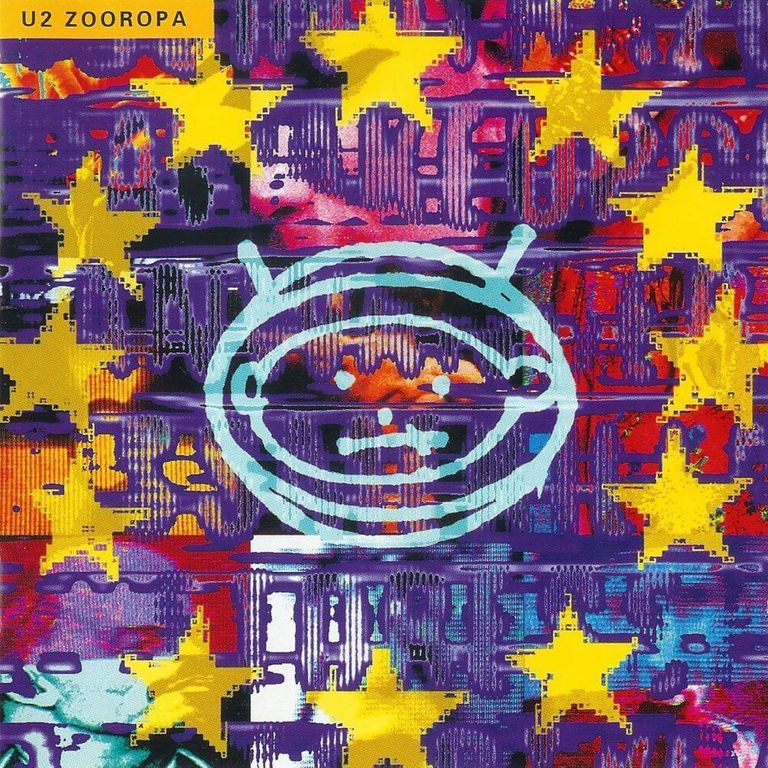
André
After the overwhelming success of Achtung Baby, U2 found themselves leaning even further into electronic dance music with Zooropa. Arena-rock anthems were replaced by songs that were less immediate, and instead demanded patience and understanding. Though the album continues to split opinion, there’s no doubt this was an audacious move.
I think the band were trying to be too clever, and it ultimately felt a little contrived. The fact they released “Numb” as a lead single was a fair enough warning sign; a song that mostly features The Edge monotonously citing instructions over a backdrop of strange samples and sound effects. It’s hardly the most exciting of U2 songs, though there’s undoubtedly a charm to it. The Edge himself was the first to admit that these songs were ‘not classics’, but ‘more experimental and interesting than classic pop songs.’ When Zooropa gets it right, you’re inclined to agree. “Lemon” is the standout moment, with Bono flaunting his stylish falsetto over one of the grooviest U2 instrumentals that has ever been recorded. Not only is it invigorating, it’s sexy as hell to match.
Zooropa was initially planned as an EP, and maybe it should have stayed that way. For all its quirks, the album can feel like a meandering mess. The best moments are inspired, but the weak spots are unfocused and unfinished. Though it’s not exactly a popular opinion, I believe a lot of these ideas were expanded on with more endeavour on the follow-up album Pop. Some of the moodiness on Zooropa feels forced, and many of the ideas fail to translate into substantial songs. The Beck-sounding “Daddy’s Gonna Pay For Your Crashed Car” feels authentically menacing, and it makes for one of the most compelling moments. But even then, producer Flood admits it ‘could have been more.’
I’d say the same for Zooropa as a whole. It’s a peculiar entry in the U2 discography - gratifyingly playful, yet sorely inconsistent, and is most rewarding as a late-night listen with headphones, when you’re slightly sleepy and sedated. The Edge never thought of Zooropa as anything more than an ‘interlude,’ so there’s no reason why fans should hold its value to anything more than exactly that: a rambling respite.
6. Pop (1997)
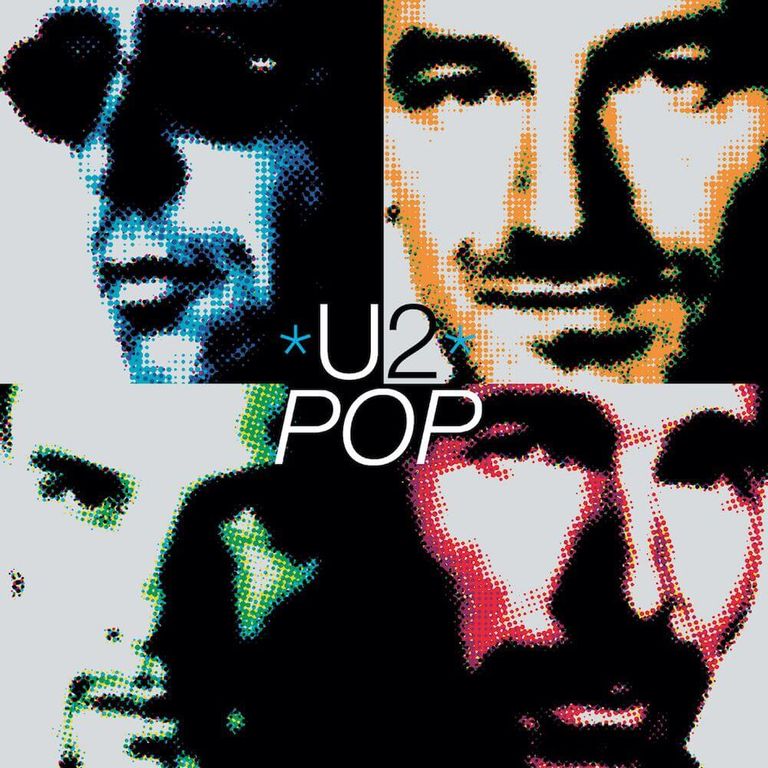
Fred
In a discography as large as U2’s the least anyone should expect is a little variety, maybe even some exploration. Pop fits the bill in that sense, and for that reason alone I like it a lot. The record ventures off the beaten U2 track and staggers toward pop-rock country, looking pretty dapper as it does so.
Given the standard of competition in 1997 it would have been easy for U2 to feel like doddery old fools, but they manage to come off passably hip. The band traded in the endless echoes of stadium rock in favour of something crunchier. The result is a ‘90s hybrid. Throughout there are shades of Oasis, the Prodigy, even the Verve. The melodies are gentler, with “Gone” probably bring the standout. Pop outstays its welcome by a good 20 minutes, but when it’s in top gear it shows a different side to U2.
The best compliment I can pay Pop is that it scratches an itch the band’s other material doesn’t. It’s not as good as The Joshua Tree or Achtung Baby — nowhere near — but it is different, and not in ways that leave you asking why the band insist on continuing to make music. Discographies are better for having wildcards like Pop in them.
5. Boy (1980)
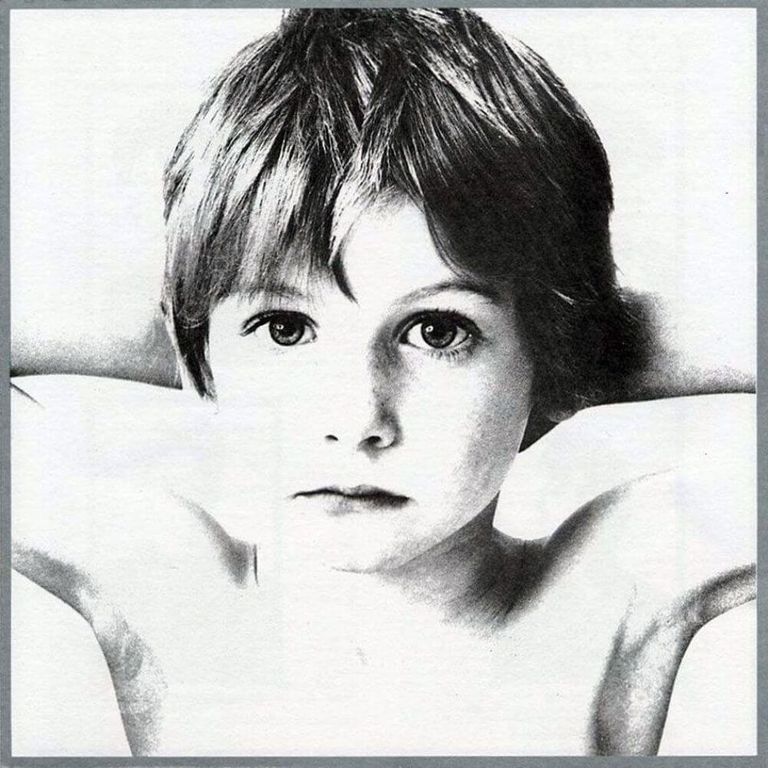
André
U2 had their sights set high from the very beginning. While only offering a fraction of the scope that we have now come to expect from the band, their 1980 debut album Boy still contains some of the hallmarks that U2 are known for today. Most notably, Larry Mullen Jr’s arena-rock drumming and Bono’s rousing wails. Such elements are fused together by the urgency of post-punk, and the aesthetic of new wave. As a result, Boy remains a distinctive listen. Though U2 have released far more ambitious albums since, their debut continues to stand out as one of their most inspired releases in their entire discography.
Opening track “I Will Follow” encapsulates everything that makes the record such a riveting listen: immediate, captivating, and out-right addictive. The Edge has never been the most elaborate guitarist, but there’s a sense of simplicity here that offers a finishing touch to the album’s best songs. There are flashes of what was to come – particularly the echoed jangles that induce trademark U2 atmospheres – but it often sounds like the band are playing without The Edge. There’s a real charm to this disparity.
One of the most compelling aspects of Boy is its youthful enthusiasm. With an average age of 21, the band sound innocent, romantic, and even slightly confused, but this results in a deeply honest work. Despite the rally cries, there’s very little sense of grandeur. Bono’s declaration of ‘I started a landslide in my ego’ on “A Day Without Me” would probably be interpreted very differently if released today. The band exude a sense of self-belief that give these songs the necessary driving force, without them sounding pretentious or preachy. They were dreaming of the big-time, but having fun in the process. Boy is arguably the band’s most danceable album prior to the experimentation we saw in the 90s.
At its best, U2 sound like a rockier and more soulful version of Joy Division. Steve Lilywhite’s production is a vital part of this process; combining the band’s take on post-punk with ambiguous ambience. Altogether, it’s a surprisingly accomplished debut album in spite of the band’s obvious state of adolescence. It’s not entirely consistent from start to finish, but it makes up for it in sheer spirit. Boy stands strong as one of U2’s most exciting records.
4. The Unforgettable Fire (1984)
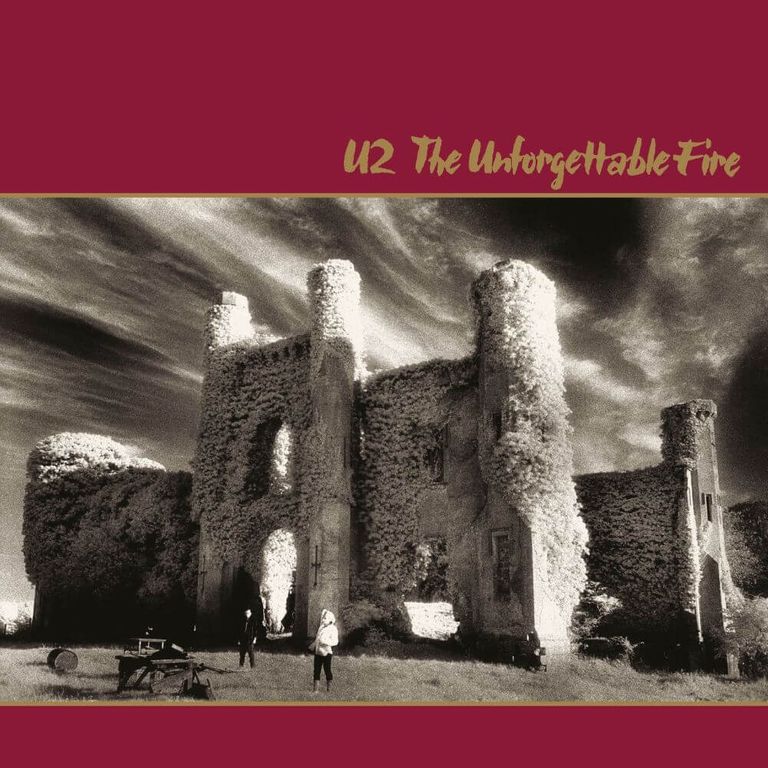
Rob
Of all the turning points in U2’s career, The Unforgettable Fire might well be the most crucial. The band had already enjoyed critical and commercial success with their brand of reverb-washed, anthemic post-punk, but the sounds introduced to them by the production pairing of Daniel Lanois and Brian Eno would go on to define their signature sound. It all started here. Eno, who had left Roxy Music, embarked on a solo career, and released Ambient 1: Music for Airports by this point, brought with him the ambient textures that many ardent fans of the group consider to be the secret ingredient that truly sent them into the stratosphere.
Much like Pulp’s His N’ Hers or Radiohead’s The Bends, The Unforgettable Fire sees U2 standing on the brink of their magnum opus. This is not a mere warm-up for The Joshua Tree, but the album lines up a series of moments that indicate towards their most-cherished work and knocks them all down. The choral pads and dramatic synth strings of the title track; the fidgety, intense bustling in the rhythm section of “Wire” that apes Talking Heads’ Remain in Light; the delicate touches applied to The Edge’s sparse, yearning guitar phrases in “Bad”. With the gift of hindsight, The Unforgettable Fire’s true strengths shine out the clearer.
Of course, this first step onto a new frontier does not come without teething problems. The front half is considerably stronger than the home stretch, which does contain “Bad”, but also meanders into cul-de-sacs on a couple of occasions. The ambience goes overboard and completely flattens the damp and, frankly, dull “Elvis Presley & America”, for example. But it’s a small price to pay for the surrounding songs, masterminded by a production duo who unleashed a talented group of musicians and unlocked their potential for good.
3. War (1983)
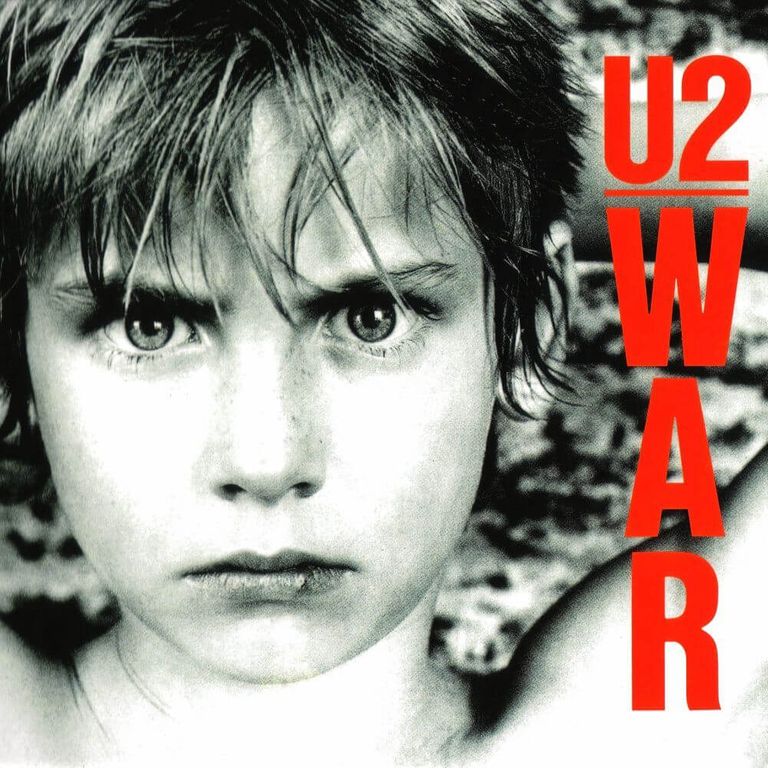
André
In many ways, War was the first album from U2 as we recognise them today. To this day it remains one of their greatest achievements. Though they went on to record projects with bigger scopes and ambitions, the band never sounded as sincere and passionate as they do their third studio album. “Sunday Bloody Sunday” is a hell of a way to open any album: a stirring protest song with distinct musical passages, and a huge indication of what was to come.
With its militaristic drumbeat and potent lyrical content that borrows from religious texts, U2 had constructed the ultimate political post-punk anthem. It remains one of their signature songs, having been played live almost 1000 times since its release. “New Year’s Day” was the band’s first no.1 in the UK, and though Bono was quick to dismiss it as a ‘pop single’ there’s no denying its charm. A song was inspired by something as poignant as the Polish Solidarity movement, yet remained so extremely catchy and infectious. This paradoxical balance was a significant reason for U2’s colossal success. It was on War where Bono unleashed one of his most powerful assets: making universal struggles sound personal and intimate.
For certain listeners, this shift towards social and political rebellion was the point of no return. “Like a Song…” is a fan favourite, and for good reason: its pace and power makes it stand out in the bands whole discography. However, there are moments here where Bono approaches the persona that makes him such divisive figure today: ‘and we love to wear a badge, a uniform, and we love to fly a flag/but I won’t let others live in hell, as we divide against each other, and we fight amongst ourselves’. Though its a message that continues to resonate with all types of people across the globe, the words themselves are fairly trite. Bono lives for cliches, and though instances on War are fairly scarce, you definitely notice the alterations in expression.
Fortunately, the music itself is exhilarating, and I think the band found a splendid balance. The elements that made Boy so exciting are still here, this time fused with grand gestures and even catchier hooks. It was the peak of U2’s youthful years, and the last record to be exclusively recorded with Steve Lillywhite. It didn’t take long for the band to expand their sound, search for expansive arrangements, and achieve colossal success. Yet for some of us, there’s a simplicity to War that makes it special. The band has never sounded so instinctively impassioned since.
2. The Joshua Tree (1987)
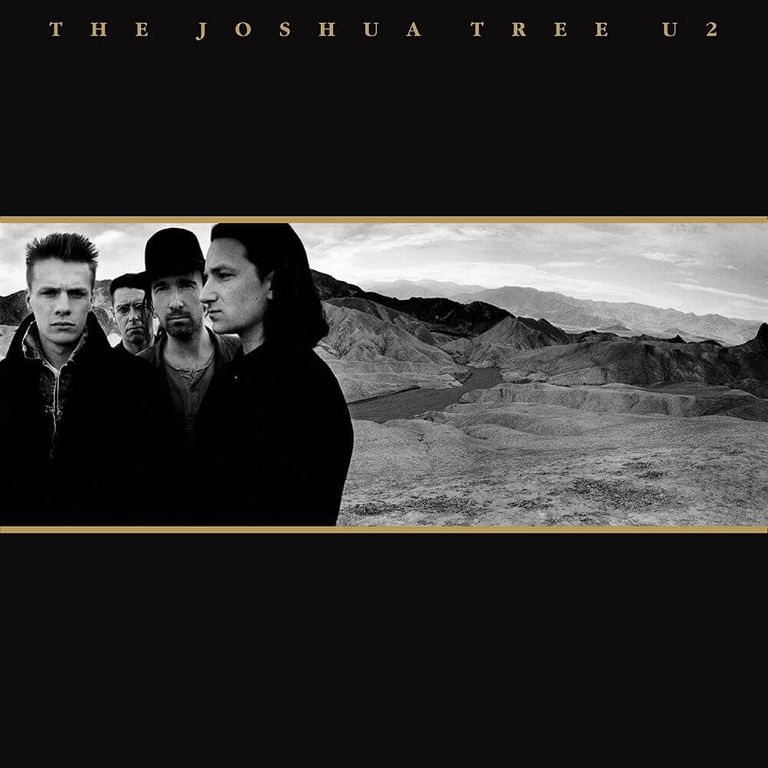
Fred
Something about America brings out a delirium in people. So much mythology, so much majesty, so much wrong when you scratch beneath the surface. If nothing else it’s a place ripe for big statements. Enter The Joshua Tree, a sprawling, bawling, enthralling record with an overblown nature perfectly suited to its subject matter.
There’s a romance to The Joshua Tree that no other U2 record quite manages. You can practically see the open roads and mountain ranges and concrete jungles and all the rest of it. The childlike excitement of tracks like “Where the Streets Have No Name” and “In God’s Country” is infectious, and, more importantly, genuine. Say what you like about stadium rock, but this is one of those times where it feels like the only sound that’ll do.
The Joshua Tree is U2 riding on the crest of their own sound. It’s the moment everything really came together. Bono plays ringmaster with a control lacking in earlier releases, while The Edge at times feels unstoppable. (Special mention to the guitar on “Bullet the Blue Sky”. Good lawd.) It’s a wonderful ride, as much a part of American travelling folklore as Jack Kerouac’s On the Road or Ernie Pyle’s Home Country.
The fact the band came crashing down afterward with the truly awful Rattle and Hum is neither here nor there. For a moment in time four boys from Dublin drank in the American horizon and wrote music worthy of both its grandeur and its self-importance. After that, where else was there to go but down?
Read our full review of The Joshua Tree →
1. Achtung Baby (1991)
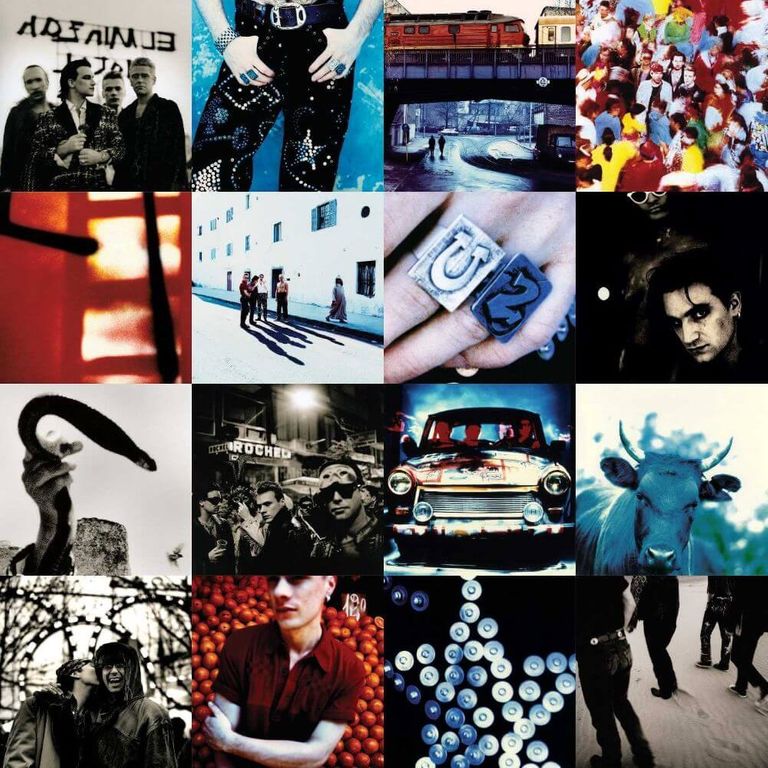
André
Achtung Baby was a welcome reinvention. Though The Joshua Tree was a huge hit, and remains a cherished work, the band received significant backlash following the album/film hybrid Rattle and Hum. The words ‘pretentious’ and ‘pompous’ came up a lot. It was a misstep, no doubt, and the group took heavy criticism to heart. Larry Mullen Jr himself admitted that, whilst they were probably the biggest band, they weren’t necessarily the best.
Ultimately, U2 were searching for something new and exciting. It took multiple recording sessions to get there, but Achtung Baby eventually became the perfect antidote. The band proved they could still surprise and thrill listeners. Lanois and Eno were retained for production duties, but their roles changed. In Eno’s own words, his job was to ‘erase anything that too much sounded like U2.’
The album still sounds huge, and it’s just as ambitious as its predecessors. The biggest shift was in character and tone. U2, somehow, became sexy. While still doused in over-sentimentality, the songs are performed, produced, and delivered with a sense of attitude. The Joshua Tree was an epic, rousing record that searched for answers within the realms of peace, love, and God. Their aim was to solve the World’s most pressing issues. Achtung Baby shifts attention to issues more personal and relatable to modern listeners. U2 were no longer trying to be heroes. They were embracing the normalities of ordinary life.
Bono admits that Achtung Baby is the reason U2 still continue to make music. The band were taking a risk by altering their sound so soon after becoming international superstars. They proved they had more in the tank; not just to fans and critics, but to themselves. Crucially, Achtung Baby provides some of U2’s greatest songs put to record. “Zoo Station” is a statement of intent that reveals the surprising influences of industrial music, alongside ’60s/’70s psychedelia. Most startling of all is the versatility shown by The Edge, who proved that he wasn’t just capable of contributing delayed chimes that reverberate to the moon and back. “Who’s Gonna Ride Your Wild Horses” delivers a trademark U2 singalong chorus, while early highlight “One” is one of the bands most marvellous ballads to date.
Achtung Baby is also one of the only U2 albums not to be totally front-loaded with standout songs. Lead single “The Fly” finds Bono whispering over The Edge’s compact textures and exhilarating effects, and remains a landmark of the entire record. “Mysterious Ways” once again benefits from tremendous guitar playing, this time over a curious funk-rock backdrop. It’s slightly ridiculous, yet not only does it somehow manage to be tasteful, it stands as one of the band’s best and most addictive songs.
This sums up Achtung Baby’s everlasting strength: the audacity to always go an extra step further out of U2’s comfort zone. The sense of musical jeopardy often borders on irony, which just provides additional layers of entertainment. In an attempt to escape from their earnest public image, Achtung Baby is the closest U2 have ever come to sounding like ordinary human beings after their early post-punk days.
Fred
Just goes to show the value of a good dressing down doesn’t it? Having been roundly and rightly mocked for Rattle and Hum, the band took it on the chin and put together an absolutely storming record. Achtung Baby isn’t as expansive as The Joshua Tree, or as impassioned as War, but boy is it the full package.
From megahit “One” to the sombre drifting of “Love Is Blindness”, the band feel like they’re in repose — at ease and in control. They had nothing left to prove, but still plenty to say. The decision to present themselves unseriously only helped on this. On Achtung Baby it’s not about the message, or the environment, or world peace — it’s about the music.
The album’s maturity is probably a key reason for it edging out The Joshua Tree, which feels a bit bright-eyed in comparison. On Achtung Baby the band reigned in their worst excesses without losing their power. Credit there must go to Daniel Lanois and Brian Eno, who did a superb balancing act on production. How typical that U2 should sound their best when trying not to sound like themselves.
Rob
It's easy to see why so many consider The Joshua Tree to be U2’s magnum opus but, like so many of the albums across their long career, it peaks with its opening stretch and never quite achieves the same level of brilliance again. That cannot be said for Achtung Baby, which was a truly bold step to the left for the band and maintains a high level of quality throughout. Not only that, but its stylistic excursions are unlike anything U2 had attempted before 1991 or would ever attempt again (at least not with this much success). Whether it’s the yearning and bittersweet pop rock of “One”, the futuristic guitar effects of “Mysterious Ways”, or the pulsating alternative dance of “Even Better Than the Real Thing”, there are several forays into diverse, uncharted territories here.
After Rattle and Hum proved controversial with fans and critics for confusing bombast and bluster, Bono and the boys went back to the drawing board to reassess their priorities as a group. What they emerged with was a new sound and image for a new decade. This was the second of their three regenerations (alongside 1984’s The Unforgettable Fire, and 2000’s All That You Can’t Leave Behind) and it might be the most invigorating for the listener: this is the sound of a band making a daring move and pulling it off. It doesn’t come without its clumsy moments, but Achtung Baby shows a level of restraint that comes as a relief. Just as you become concerned that Bono might have become too obsessed with aping heartland rock legends, he pulls himself back from the edge (no pun intended) and keeps steady long enough to see this ambitious, experimental project through.

Related Posts
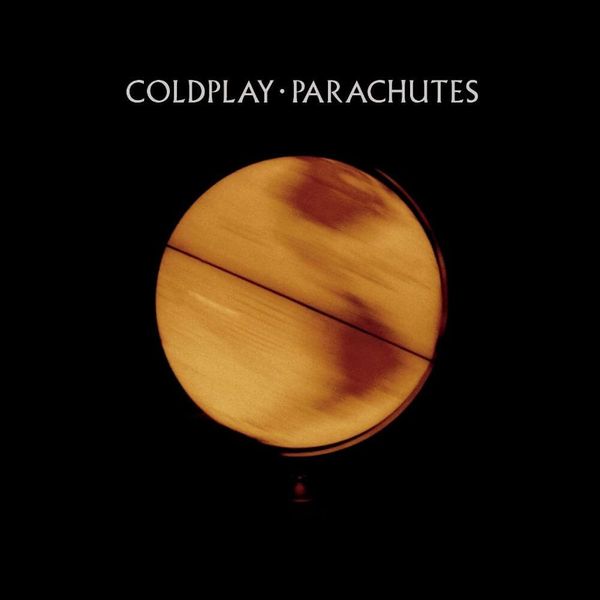
Parachutes // Coldplay
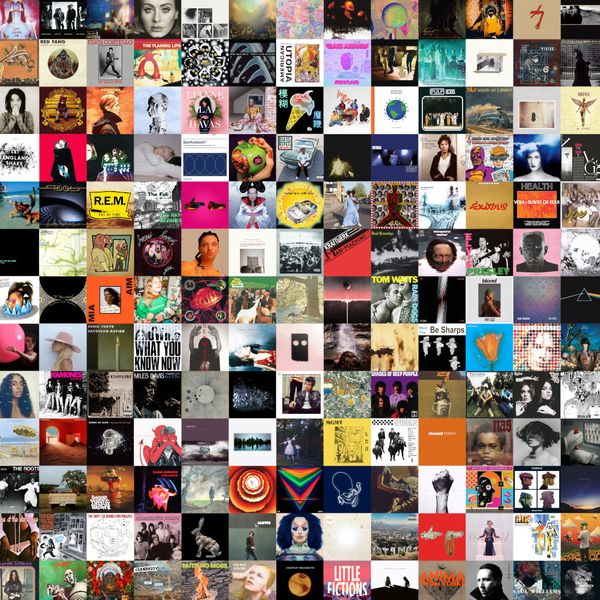
Statsioxide: our first 250 reviews in numbers
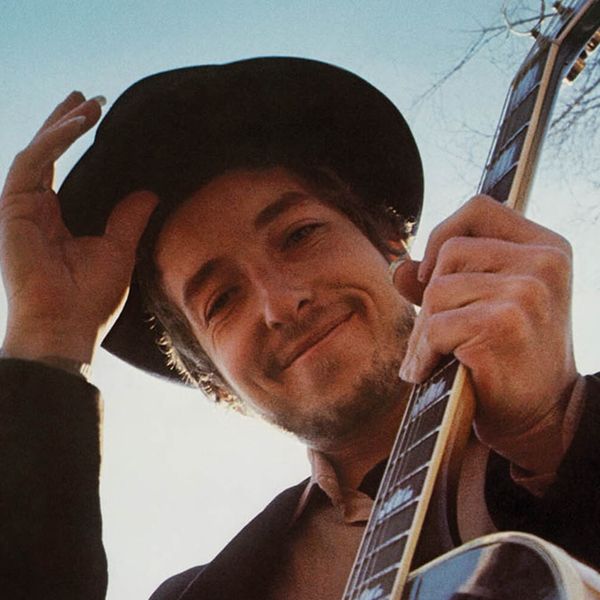
Mr. Tambourine Fan: Bob Dylan’s studio albums ranked
